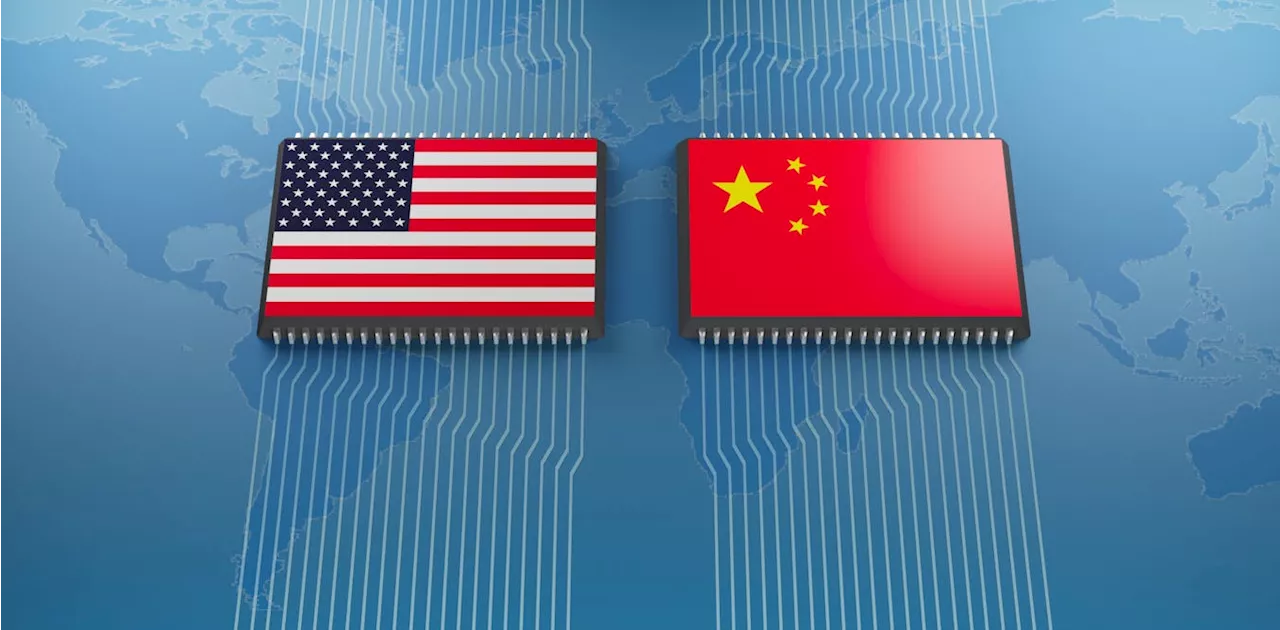A new science and technology agreement between the US and China aims to balance growing security concerns with the need for international collaboration. The revised pact raises questions about the future of scientific progress in a world increasingly wary of research security.
Amid heightened tensions between the United States and China, the two countries signed a bilateral science and technology agreement on Dec. 13, 2024. The event was billed as a “renewal” of a 45-year-old pact to encourage cooperation, but that may be misleading. The revised agreement drastically narrows the scope of the original agreement, limits the topics allowed to be jointly studied, closes opportunities for collaboration and inserts a new dispute resolution mechanism.
This shift is in line with growing global concern about research security. Governments are worried about international rivals gaining military or trade advantages or security secrets via cross-border scientific collaborations. The European Union, Canada, Japan and the United States unveiled sweeping new measures within months of each other to protect sensitive research from foreign interference. But there’s a catch: Too much security could strangle the international collaboration that drives scientific progress. As a policy analyst and public affairs professor, I research international collaboration in science and technology and its implications for public and foreign policy. I have tracked the increasingly close relationship in science and technology between the U.S. and China. The relationship evolved from one of knowledge transfer to genuine collaboration and competition. Now, as security provisions change this formerly open relationship, a crucial question emerges: Can nations tighten research security without undermining the very openness that makes science work? China’s ascent changes the global landscape China’s rise in scientific publishing marks a dramatic shift in global research. In 1980, Chinese authors produced less than 2% of research articles included in the Web of Science, a curated database of scholarly outpu
Science Technology US-China Relations Research Security International Collaboration
Australia Latest News, Australia Headlines
Similar News:You can also read news stories similar to this one that we have collected from other news sources.
 The Science of Happiness: Preregistration and Open ScienceThis article explores the scientific study of happiness, highlighting the rise of Positive Psychology and the subsequent challenges faced by the field. It discusses the issue of flawed research practices like p-hacking and HARKing, and how the movement towards Open Science, with preregistration as a key standard, aims to address these problems.
The Science of Happiness: Preregistration and Open ScienceThis article explores the scientific study of happiness, highlighting the rise of Positive Psychology and the subsequent challenges faced by the field. It discusses the issue of flawed research practices like p-hacking and HARKing, and how the movement towards Open Science, with preregistration as a key standard, aims to address these problems.
Read more »
 Geelong Refinery: Balancing Tradition and the FutureThe aging Geelong oil refinery in Australia is undergoing a transformation, investing in renewable fuel infrastructure while facing the uncertain future of the fossil fuel industry.
Geelong Refinery: Balancing Tradition and the FutureThe aging Geelong oil refinery in Australia is undergoing a transformation, investing in renewable fuel infrastructure while facing the uncertain future of the fossil fuel industry.
Read more »
 Vertical Schools: Balancing Urban Living with NatureMelbourne is seeing a rise in vertical schools, offering a unique urban learning experience. While these schools provide modern facilities and accessibility, experts emphasize the importance of integrating nature into their design to ensure student well-being and connection.
Vertical Schools: Balancing Urban Living with NatureMelbourne is seeing a rise in vertical schools, offering a unique urban learning experience. While these schools provide modern facilities and accessibility, experts emphasize the importance of integrating nature into their design to ensure student well-being and connection.
Read more »
 Melbourne's Vertical Schools: Balancing Urban Learning with NatureThis article explores the rise of vertical schools in Melbourne, highlighting the challenges and opportunities of providing outdoor access and natural connection for students in high-rise urban environments.
Melbourne's Vertical Schools: Balancing Urban Learning with NatureThis article explores the rise of vertical schools in Melbourne, highlighting the challenges and opportunities of providing outdoor access and natural connection for students in high-rise urban environments.
Read more »
 Australia Bolsters Solomon Islands Police Force with $190 Million Security PactAustralia has pledged $190 million to strengthen the Solomon Islands' Royal Solomon Islands Police Force, including establishing a new police training center. The agreement aims to enhance the Pacific nation's security capabilities amidst growing Chinese influence in the region.
Australia Bolsters Solomon Islands Police Force with $190 Million Security PactAustralia has pledged $190 million to strengthen the Solomon Islands' Royal Solomon Islands Police Force, including establishing a new police training center. The agreement aims to enhance the Pacific nation's security capabilities amidst growing Chinese influence in the region.
Read more »
 Musk and Farage: A Rift in the Billionaires' PactThe article examines the surprising falling out between Elon Musk and Nigel Farage, two figures previously aligned in their ambition to influence British politics. It speculates on the reasons behind the split, highlighting Musk's past offers to financially support Farage's political endeavors.
Musk and Farage: A Rift in the Billionaires' PactThe article examines the surprising falling out between Elon Musk and Nigel Farage, two figures previously aligned in their ambition to influence British politics. It speculates on the reasons behind the split, highlighting Musk's past offers to financially support Farage's political endeavors.
Read more »
